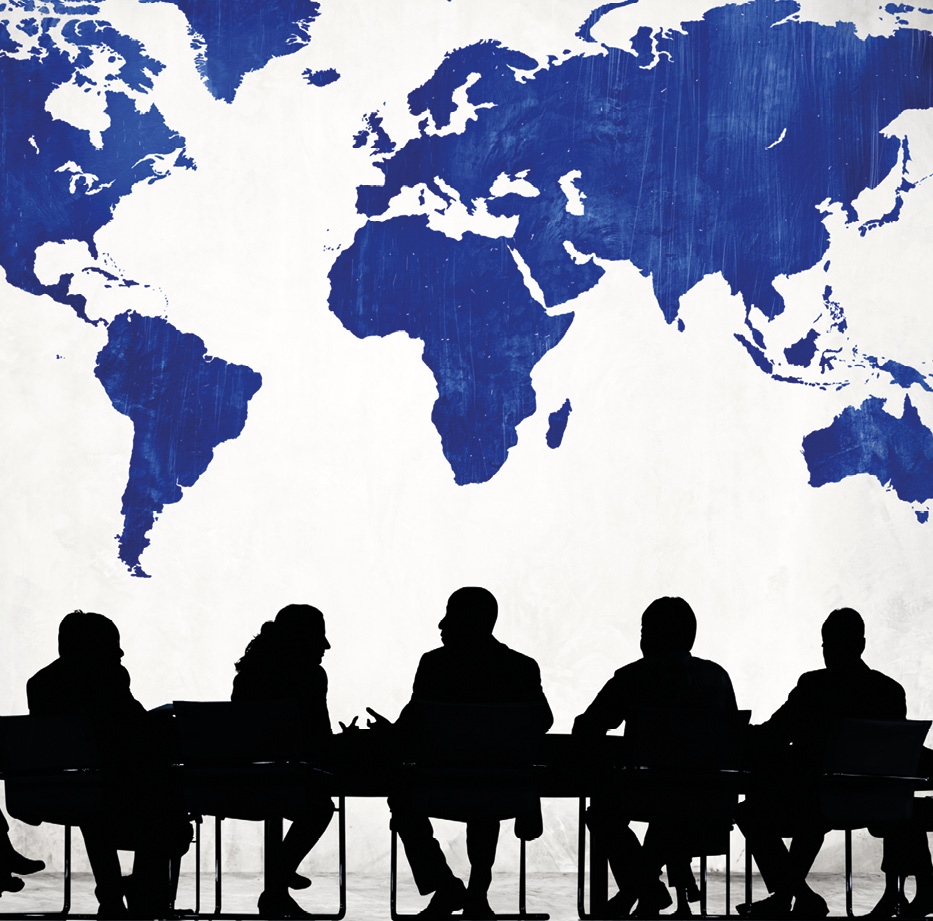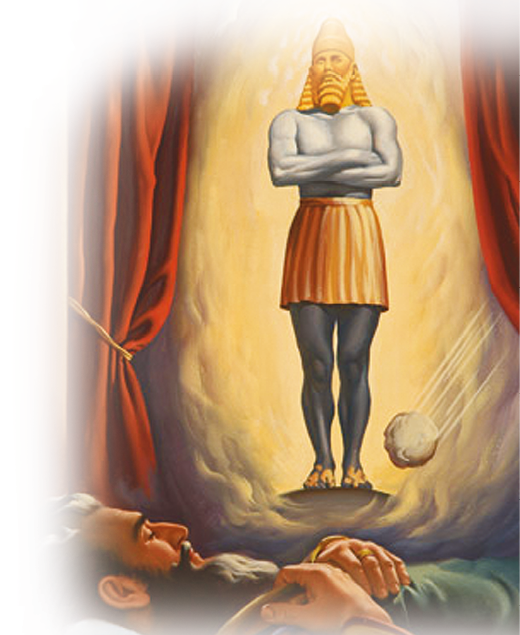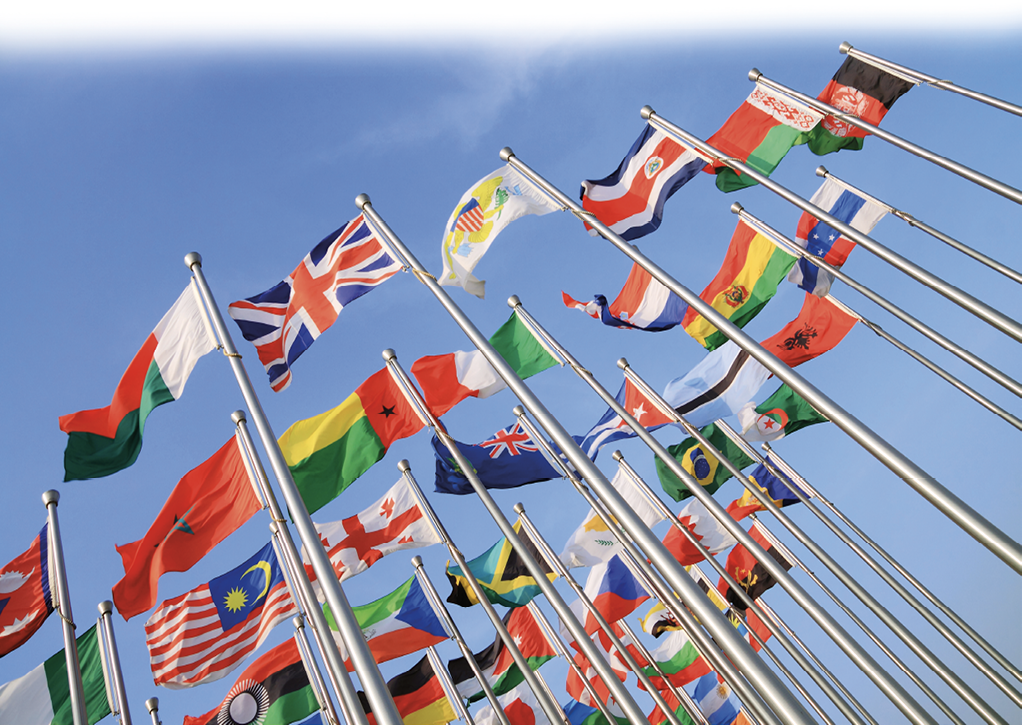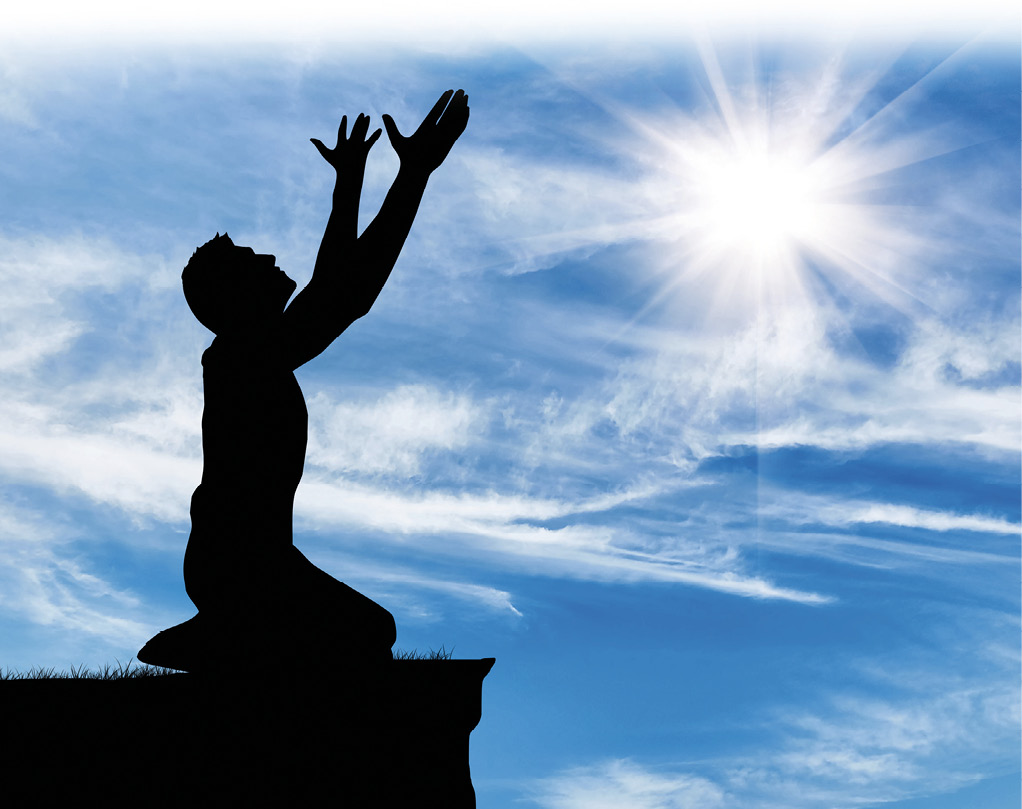

Daybreak sneaks calmly into the city of Brasilia. It will be a day like any other: full of violence, global uncertainty, and the threat of war. We are accustomed to bad news. Newspapers have no new news to herald, their “news” is almost always the same.
Instability continues to leave a profound impact throughout the planet. The effects of the “Arab Spring” can still be seen, considered the first great wave of secular and democratic protests in the twenty-first century, which ousted several leaders of Muslim countries. But the spirit of protest is ongoing. In Syria, fighting has reached levels of brutal massacres, in which thousands of innocent people have lost their lives, facing apparent indifference from Western governments.
Imbalance has affected the Vatican itself, a symbol of historic stability. In an unforeseeable event, Benedict XVI resigned his papacy amid rumors of betrayals and schemes. The arrival of a Jesuit, Francis I, has revived conflict between progressives and conservatives, the latter suffering a vicious blow.1 The struggle is far from over.
Things are not going well in the world. The global economy continues to drown in the quicksand of public indebtedness, of political crises, of fiscal cutbacks, and high unemployment rates. The excesses of financial speculators in the past decade came to an end with a mountain of loans impossible to re-pay, driving into bankruptcy hundreds of large companies and banks that had to be rescued by governments.
Consequently, public debt, which was already high, reached levels never seen in the most developed countries. And the burden of such debt was transferred to the population through severe cutbacks that aggravated the crisis and worsened living conditions of the least privileged.
Although Latin America remains on the edge of financial crisis because of its growing ties with Asian economies, China and other Asian economies face difficulties in trade with both Europe and the United States. For several months, the Asian tiger has seen its economic activity plummet, and Brazil, a principal Latin American economy, struggles to revive the economic growth in recent years.2 In today’s climate no one is immune from a financial crisis.
Meanwhile, the European economy makes “last-ditch efforts” to reach an economic lifeline. The European Central Bank (ECB) calls for indebted countries to do everything possible to consolidate their public debt. The economic disasters of Cyprus and Greece have demoralized the European Union, which increasingly questions its existence.
Amid this bleak outlook, many wonder about the need for a new world order. This expression is increasingly used to refer to a period of history in which political powers will unite under one flag for the purpose of fixing world disorder. The first time the expression “new world order” appeared was in a document prepared by T. Woodrow Wilson, twenty-eighth president of the United States, after World War I, who recommended the creation of a League of Nations, which later gave rise to the United Nations.
The expression “new world order” was used again at the end of World War II. However, its use increased during the last period of the Cold War, when Russian president Mikhail Gorbachev and United States president George H. W. Bush employed the term to describe the spirit of cooperation sought between the two great world powers.
In 1991, during the war in Iraq and Kuwait, Time magazine published the following: “As the bombs fell and missiles flew, hopes for a new world order gave way to familiar disorder.” It added: “No one should be under any illusion that the vaunted new world order is in place or even at hand.”3 Everyone agrees that the current state of affairs must change.
Indeed, no country wants to lose its sovereignty, and everyone desires a climate of peace, harmony, and cooperation between nations. The question is: How will the new world order be established? The idea is not as ridiculous as some may think. A new world order is the desire of every sensible heart. Today, it is increasingly more appealing to think about order in a planet where disorder rules in matters such as organized crime, violence, unemployment, corruption, increase in disease, environmental pollution, and others. The masses dream of a world in which there is only one flag, without borders, differences, or prejudices. Is it merely a utopia or is it a possibility?
In recent years, with the development of technology and social networks, the dream of a new world order seems more feasible. The globalized world we live in has become ever smaller. In the global village, news travels from one ocean to another in only a few seconds. Distances have been shortened. Spaces have been reduced. Voids have been filled. Hope for new world order is perceived as less utopian.
However, something fundamental is forgotten. The human heart is full of mysteries; it does not understand itself. It carries traumas and complexes of unknown origins, but they make it seem selfish. It is not lack of will, nor lack of communication. The major obstacle is humanity itself, and its self-centered vision of the world and of life. It happens to individuals, families, societies, and governments. The challenge of a new world order does not entail breaking barriers of distances that no longer exist, but in breaking down walls raised by contemporary humanity to hide its own prejudices and fears.
Unless there is change in the human heart a new world order is impossible. Governments will rise and fall. Different political systems will parade down the runway of history and disappear. Time will contemplate a succession of failed attempts to unite the nations of the world, but things will go from bad to worse. The Bible says: “While people are saying, ‘Peace and safety,’ destruction will come on them suddenly, as labor pains on a pregnant woman, and they will not escape’” (1 Thess. 5:3).
Never before in the history of the world has there been so much talk of peace. The United Nations basically exists for the purpose of promoting peace among peoples. What has been achieved? We live in a time of fear and distress because of the threat of violence. Nobody trusts anybody. People take refuge in their own homes, as in prisons, surrounded by electrified fences and security systems. The Word of God has warned of this situation: “People will faint from terror, apprehensive of what is coming on the world, for the heavenly bodies will be shaken” (Luke 21:26).
Few people know that even if the desire for a new world order is on the lips and in the hearts of world leaders, Holy Scripture declares that such a sophisticated project will not be the fruit of human intentions or efforts. More than 20 centuries ago, the prophet Daniel announced that human intentions, in that regard, would fail.4
THE STATUE OF DANIEL 2
| The Golden Head | It represents the Neo-Babylonian Empire (605-539 BC). In the same way that gold is the best among metals, this reign will be magnificent. When Assyria was fallen, Babylon inherited the entire Mesopotamia, Syria and Palestine. Once Egypt was subdued, it had no rival. Nebuchadnezzar II governed successfully during 40 years. He died in 562 BC when he was 104 years old. However, his descendants fought for the power among themselves after his death. Belshazzar governed during the last ten years of the Empire in coregency with Nabonidus, his father. While king Belshazzar celebrated a party (Daniel 5), the Empire fell before the Medo-Persian armies on October 12, 539 BC. |
| The Silver Chest and Arms | It represents the Medo-Persian Empire (539-331 BC). Around 1000 BC the Medes where not a very organized people who lived in the east of Assyria. The Persians were related to them. Originally, Persians had their own king, but during the first period the king of the Medes governed over the Medes and the Persians. From Cyrus, Persians got total power. After they subdued, Babylon raised as the new power of that region. |
| The Bronze Belly | It represents the Greek Empire (331-168 BC). Due to his excellent leadership, Alexander the Great was one of the most famous commanders in the history. He began his invasion of Minor Asia in 334 BC. He defeated Darius III in the Battle of Issus in 333 BC. In addition, he vanquished the Persian armies in the Battle of Gaugamela in 331 BC and became the East’s landlord. He set off on an expedition to the heart of Asia and when he returned to Babylon, he died in 323 BC. Then the Empire was divided among four officers: Lysimachus, Cassander, Seleucus, and Ptolemy. |
| The Iron Legs | It represents the Roman Empire (168 BC-476 AD). The Punic Wars (264-146 BC) signified a great advance in the Roman domination of the world. Also, Carthage’s destruction in 146 BC exterminated one of the major rivals of Rome. The Macedonian Wars (215-168 BC) caused not only the domination of Macedonia, but also of part of Asia Minor. Julius Caesar made extensive conquests in Gaul and Germania, crossed the English Channel and became the Empire’s ruler from 48 to 44 BC. Rome governed more territory than the previous empires and its hegemony extended during 600 years. In addition, it established in all its provinces a government system that would become standard of the future European countries. However, the influence of the powerful Empire would be reduced through Barbarian invasions in different times until it finished when the leader of the Germanic mercenaries, Odoacer, removed the last Roman emperor from the office. |
| The Clay and Iron Feet | The barbarian tribes were the foundation for the formation of the European countries. Then came the feudalism and the Middle Ages. After that, during the Modern Age, it was time for the development of science, technology, and secularism. In the recent past, Napoleon and Adolf Hitler tried to establish a continental Empire through the force of arms, but they could not. Today, poor and wealthy countries form the world, where political, economical or cultural unity has never been possible. |
| The Rock | In the Bible, the rock represents Jesus (1 Cor. 10:4). Here it refers to the Second Coming of Christ, the most important event in history mentioned in the Holy Scriptures. |
Excerpt from Alejandro Medina V., El futuro del mundo revelado. Estudios bíblicos sobre los libros de Daniel y Apocalipsis, Mexico: GEMA EDITORES, 2012, p. 9.

The prophecy presents the succession of peoples, from the Neo-Babylonian Empire of King Nebuchadnezzar to the present-day. The fulfillment of the biblical prophecy was carried out with great accuracy. The Neo-Babylonian Empire fell and the Medo-Persian Empire emerged, which was replaced by the Greco-Macedonian Empire under the reign of Alexander the Great. Upon the death of its leader, the empire was divided into four fragile kingdoms. Then came the Roman Empire with the strength of iron. Within a short time it ruled the world of those times. However, the prophecy announced that this empire would also crumble to make way for the 10 kingdoms that created Europe. And so it was.
Since then, many uprisings have tried to unite the world under a single government. Kings gave their daughters in marriage intending to unite with other kingdoms. Short-lived stars appeared, such as Charlemagne, king of the Franks and emperor of the West. He expanded his kingdom until it became the Carolingian Empire, which united the greater part of Western and Central Europe. But it did not rule the entire world. Perhaps the last attempt was that of Adolf Hitler and his maniacal dream to establish world dominance.
One by one, history gradually buried human intentions to create a new empire or power capable of uniting the world. Daniel’s prophecy states: “As the toes were partly iron and partly clay, so this kingdom will be partly strong and partly brittle. And just as you saw the iron mixed with baked clay, so the people will be a mixture and will not remain united, any more than iron mixes with clay” (Dan. 2:42, 43).
The assertion “so the people will be a mixture and will not remain united, any more than iron mixes with clay,” is shocking. It is an accurate description of an unequal world, with weak countries such as “clay” and strong ones such as “iron,” amid a less than favorable attitude toward unity and cooperation among peoples. But it is the Word of God describing from the past the current situation of our times, speaking of a frustrated human desire to have a new world order.
The Bible states that in the final days there will be a new attempt to realize the dream of uniting the world. The prophetic book of Revelation says that such an initiative will be taken by a power represented by a beast. The passage says: “The dragon stood on the shore of the sea. And I saw a beast coming out of the sea. It had ten horns and seven heads, with ten crowns on its horns, and on each head a blasphemous name. The beast I saw resembled a leopard, but had feet like those of a bear and a mouth like that of a lion. The dragon gave the beast his power and his throne and great authority. One of the heads of the beast seemed to have had a fatal wound, but the fatal wound had been healed. The whole world was filled with wonder and followed the beast. People worshiped the dragon because he had given authority to the beast, and they also worshiped the beast and asked, ‘Who is like the beast? Who can wage war against it?’ The beast was given a mouth to utter proud words and blasphemies and to exercise its authority for forty-two months. It opened its mouth to blaspheme God, and to slander his name and his dwelling place and those who live in heaven. It was given power to wage war against God’s holy people and to conquer them. And it was given authority over every tribe, people, language and nation. All inhabitants of the earth will worship the beast—all whose names have not been written in the Lamb’s book of life, the Lamb who was slain from the creation of the world” (Rev. 13:1-8).
Expressions such as “The whole world was filled with wonder and followed the beast,” “and it was given authority over every tribe, people, language and nation,” or “all inhabitants of the earth will worship the beast” are significant. Notice how often in a relatively short passage the word “all” or a similar word such as “whole” is mentioned. A sense of globalization appears. In some manner the whole world is involved.
THE BEAST THAT COMES OUT OF THE SEA AND THE SYMBOL OF THE BEAST
Characteristics of the beast that rises from the water
Revelation 13:2-7
• The dragon gave the beast its power, its throne, and great authority.
• The world worshiped the dragon that gave great authority to the beast. They worshiped the beast, saying “Who is like the beast and who can fight against it?”
• One of its heads suffered a fatal wound.
• It was given a mouth that spoke arrogant words and blasphemies.
• It was allowed to wage war against holy people, and defeat them.
• It was given authority to carry it out for 42 months (1,260 years).
• The number of the beast is the number of a man: 666 (Rev. 13:18).
Interpretation:
• The dragon is a symbol of Satan, clearly identified in Daniel and Revelation, acting through the Roman Empire.
• The beast represents a power or political-religious system that intends to usurp the authority of God. It will seek to change God’s laws and impose economic sanctions and impose the death penalty on those who oppose its efforts.
• The mark of the beast consists of extolling the human religious tradition above the commandments of God. It places human standards above the latter and gives preference to ecclesiastic dogmas over inspired revelation. This involves a false system of worship that will try to replace the holy day, namely, the Sabbath of the Creator.
• The mark does not consist of something physical; it is a symbol of rebellion and infidelity to God’s government.
• Whereas the number seven in the Bible represents what is perfect and whole in the work of God (see Rev. 1:20; 5:1; 8:2; 16:17), the number six is a symbol of what is incomplete and partially true, which can be more dangerous than a complete lie. The number six repeated three times (666) refers to a trinity that proclaims lies, falsehood, and deceit. In this case, it is a triple trap for “man” and a human organization.
• Most scholars concur that the papacy conforms to the characteristics of the beast, which, through support from the second beast in Revelation 13:11-18, identified as the United States of America, will require the observance of Sunday as the day of rest.
Adapted from Mark Finley, The Next Superpower, Hagerstown: Review & Herald, 2005, pp. 136-138.
It is not my objective to make an in-depth analysis of this part of the prophecy.5 To be precise, I am trying to present a last failed attempt to unite the inhabitants of the earth under one new world order. In prophetic language, the word “beast” represents a “government,” “empire,” or “ruling power.”6 Therefore, the beast described in this passage symbolizes a power that arouses admiration from all peoples, languages, and nations. All the inhabitants of the earth follow it, except for a small group of people who remain loyal to the heavenly Father.
A power that attempts to build world order is a political power that deals with countries and individuals. But it is fundamentally religious because it accepts the worship of people and assumes divine prerogatives to itself. The passage says: “it opened its mouth to blaspheme God, and to slander his name and his dwelling place and those who live in heaven.”
Who does this beast symbolize? To identify it, one needs only look for a power in our times with the characteristics described in the biblical passage: a political-religious power that stirs up the admiration of people and to which all kings of the earth bow down. It is a power that contradicts biblical teachings, resists God, and receives worship from human beings. A power that in a certain period of history suffered a “mortal wound,” which lost the strength it boasted and later regained; one that the whole world follows in awe. Finally, it is a power that receives authorities—not from itself—but from a figure symbolized by a dragon, which “gave the beast his power and his throne and great authority” (Rev. 13:2).

It is amazing yet disturbing to read the biblical passage and realize a powerful nation will support a religious power to reach its objectives. This nation is also presented in the prophecy by the figure of another beast described in the following manner: “It exercised all the authority of the first beast on its behalf, and made the earth and its inhabitants worship the first beast, whose fatal wound had been healed. And it performed great signs, even causing fire to come down from heaven to the earth in full view of the people. Because of the signs it was given power to perform on behalf of the first beast, it deceived the inhabitants of the earth. It ordered them to set up an image in honor of the beast who was wounded by the sword and yet lived. The second beast was given power to give breath to the image of the first beast, so that the image could speak and cause all who refused to worship the image to be killed. It also forced all people, great and small, rich and poor, free and slave, to receive a mark on their right hands or on their foreheads, so that they could not buy or sell unless they had the mark, which is the name of the beast or the number of its name” (Rev. 13:12-17).
The passage mentions a nation that dazzles with its power and technology. It accomplishes prodigious, fantastic, and admirable things. Humanity acknowledges its might and influence on the planet. It is prestigious, and in the final days it will use all its resources to enable the religious power represented by the first beast to reach its objective: to establish a new world order.
The terrifying aspect of all this is that the second power will use its strength to reach its objective and bend the conscience of people. It will force humanity to obey the first beast and to receive its symbol. And anyone who refuses to do so will be persecuted to the extent of being unable to sell or buy.
What country symbolizes this second beast? This is a matter of vital importance. Prejudice, indifference, fear, or arrogance could be fatal to understanding a topic of such transcendence.
The Bible is the only source of reliable information. But many people believe the Bible is an outdated book. I recently had a conversation with a journalist on a flight from Brasilia to Sao Paulo, Brazil. He asked, “Wasn’t the Bible written centuries ago? How can it have any relevance in our time?”
Truly, times have changed. The present is not the same as the past when the Bible was written. Culture, clothing, types of food and music, many things are different. However, the human heart continues to be the same. The fears of the past are the same as those of today. Family conflicts from biblical times are the same that face contemporary families. Complexes and traumas that drove many people crazy in ancient times are the same invisible ghosts that torment humanity in the twenty-first century.
Therefore, the Bible and the biblical prophecies are not outdated. They demand attention. Especially because they are not limited to the present; they project to the future and affect the fate of individuals, families, and society.
The prophecy goes on to say that despite all the efforts of the aforementioned powers, the desired new world order will not be achieved. Countries will remain in conflict. On one hand, there will be excessive abundance; on the other, extreme poverty, racial, political, and economic struggles, prejudices, fratricidal wars, blood, violence, and cataclysms. In view of this scene, the prophet says: “In the time of those kings, the God of heaven will set up a kingdom that will never be destroyed, nor will it be left to another people. It will crush all those kingdoms and bring them to an end, but it will itself endure forever” (Dan. 2:44).

This is the true new world order. A world without wars, death, injustice, or violence; a world where there is no selfishness, arrogance, jealousy, or lies. But this new world order will be established by God, not by humanity. The apostle John describes it: “Then I saw a new heaven and a new earth, for the first heaven and the first earth had passed away, and there was no longer any sea. I saw the Holy City, the new Jerusalem, coming down out of heaven from God, prepared as a bride beautifully dressed for her husband. And I heard a loud voice from the throne saying, ‘Look! God’s dwelling place is now among the people, and he will dwell with them. They will be his people, and God himself will be with them and be their God. He will wipe every tear from their eyes. There will be no more death or mourning or crying or pain, for the old order of things has passed away.’ He who was seated on the throne said, ‘I am making everything new!’ Then he said, ‘Write this down, for these words are trustworthy and true’” (Rev. 21:1-5).
These words are “trustworthy and true.” They are not the promises of a politician on a campaign trail. They are the words of a God who never fails and can be trusted. “God is not human, that he should lie, not a human being, that he should change his mind. Does he speak and then not act? Does he promise and not fulfill?” (Num. 23:19).
The world in which we live in is falling apart. Denying it would be to turn a blind eye to reality. Homes are torn apart; children destroy their young lives in the implacable flames of promiscuity and vice; hunger, inner emptiness, hate, resentment, violence, and injustice plague humanity. Human intentions to solve the problems of our old and injured planet are futile. Only God can change things, and He will. The new world order is closer than any of us can imagine. Yet we need to believe.
The drama of modern humanity is that it is capable of believing any ideological trend, regardless of how grotesque it may be. But it refuses to acknowledge sound truths of the Word of God.
Not long ago my family and I were on a train that devoured distances as we traveled from Cuzco, Peru, to the mountains of Machu Picchu. My wife and children enjoyed the beautiful landscape and captured everything with their cameras. I also looked through the windows, but my attention was focused on the conversation of two Europeans and an American who were speaking about the possibility of beings from other worlds to help in the construction of those ancient cities hidden among the mountains.
“The Incas did not build all this alone,” said one of them with great conviction. The construction, the placement of stones, and the logistics used demonstrate the participation of beings from other planets.
“I have no doubt at all,” replied the other. “From the moment I arrived at the airport in Cuzco, I felt the presence of beings from other worlds. A type of positive energy permeates the atmosphere.”
A third man was indifferent to what his fellow travelers were saying. He must have been nearly 50 year of age, and he hid his gaze behind a pair of dark sunglasses. He wore a cap from the U.S. Armed Forces and seemed to be asleep. No one noticed the tears streaming down his grief-stricken face.
Finally, one of his companions noticed and tried to calm him: “Relax. Forget what happened. Things are what they are. Enjoy the scenery!”
I sometimes try to imagine the suffering of others. I try in vain to enter the inner world of people who suffer. I wish I had a remedy to alleviate the bitterness of the soul, and I do. It is the Word of God. However, what can be done for someone who does not believe? That morning, upon entering the train, my wife had politely greeted the man and given him a leaflet about Jesus, the supreme hope of humanity. He did not hide his indifference. He tore the leaflet and threw it in the trash.
Hours later, in the archeological ruins of the Inca Empire, I encountered the man again. He had removed his sunglasses and knelt, arms outstretched in the shape of a cross, breathing heavily and contemplating the scenery while his blue eyes continued to shed tears.
That is the living image of contemporary humanity. Amid a desperate anxiety to believe in something, it deposits its faith in a disorganized spirituality, which tries to uproot human identity at all costs. It desperately searches for the positive energy that no laboratory has been able to prove, but it refuses to believe in a loving God who is willing to transform a disordered inner world.
I do not believe in coincidences. I believe in a divine plan that is sometimes difficult for us to discover. No one reads a book by chance, and no person remains the same after reading it. What will you do with what you have read? Life is constant growth, and growth implies pain. Leaving the beach where you have always gone swimming and entering strange deep waters can be painful. But it is necessary!
1. La Nazione (Italy), March 7, 2013.
2. A. Nardelli, “The noise from Brazil? An economy on the brink,” The Guardian (UK), March 6, 2015, https://bit.ly/2L0dM6G. Accessed: March 6, 2015.
3. S. Talbott, “A Storm Erupts,” Time, January 28, 1991, pp. 14, 17.
4. Daniel 2.
5. For a more complete explanation of this prophecy, see C. Mervyn Maxwell, God Cares, Volume 2, Nampa: Pacific Press Publishing Association, 1998.
6. Daniel 7:17.
